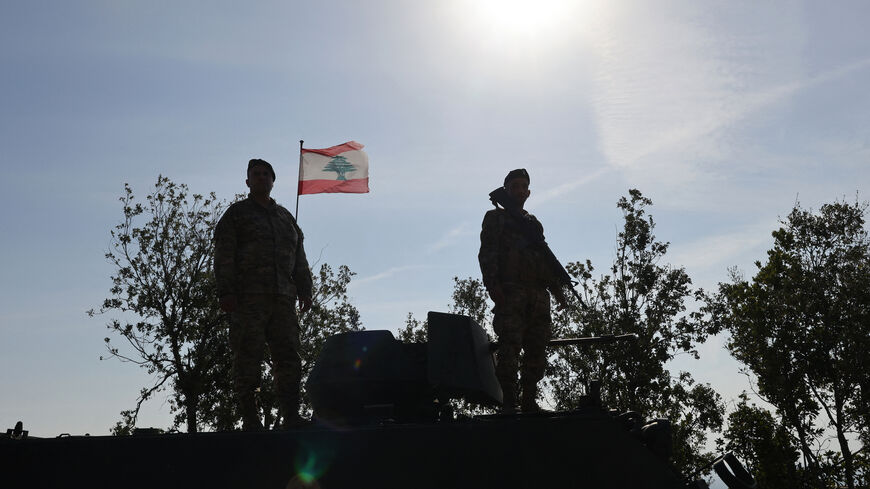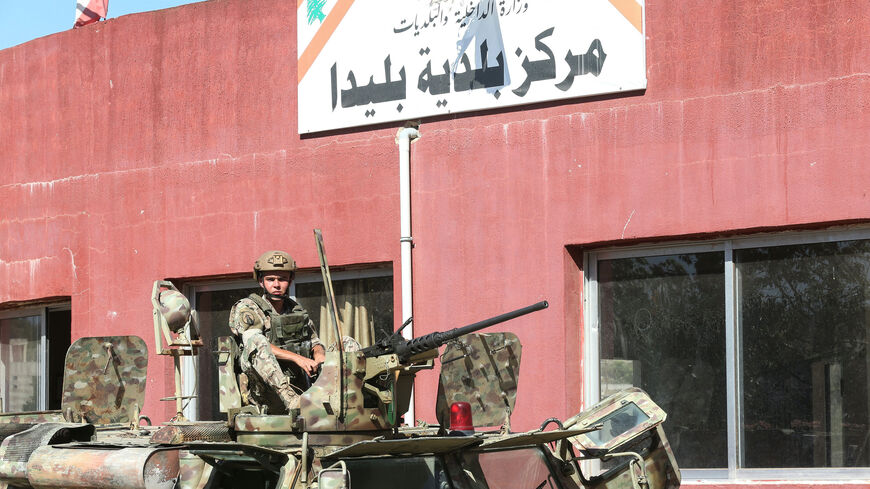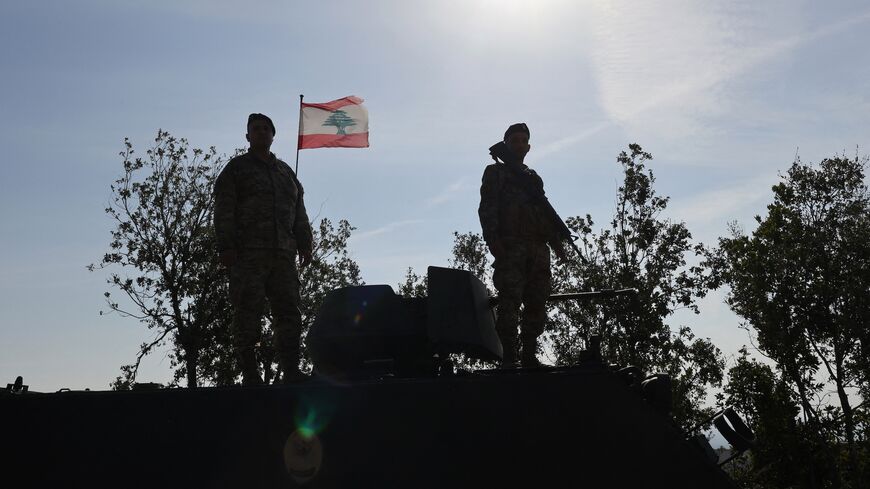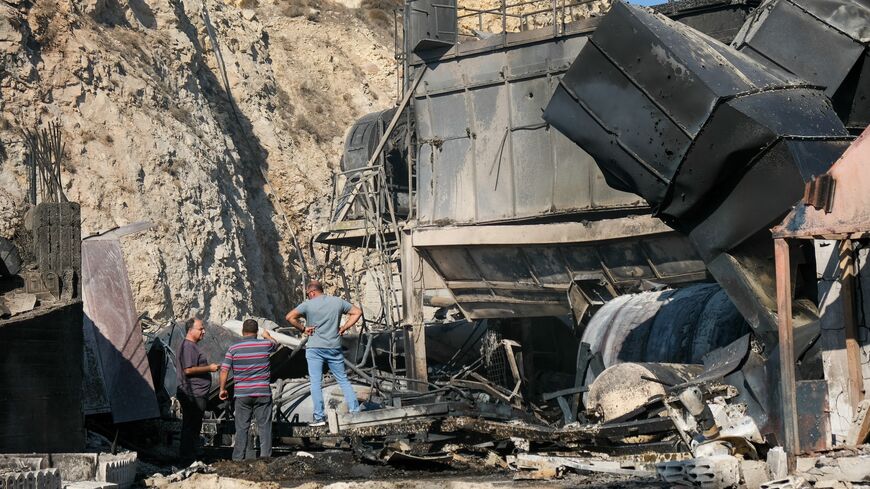US cancels Lebanon army chief visit amid frustration over Hezbollah: What to know
Washington canceled a planned visit by Lebanon’s army commander Gen. Rodolphe Haykal, signaling growing US frustration over Lebanon’s delay in disarming Hezbollah.
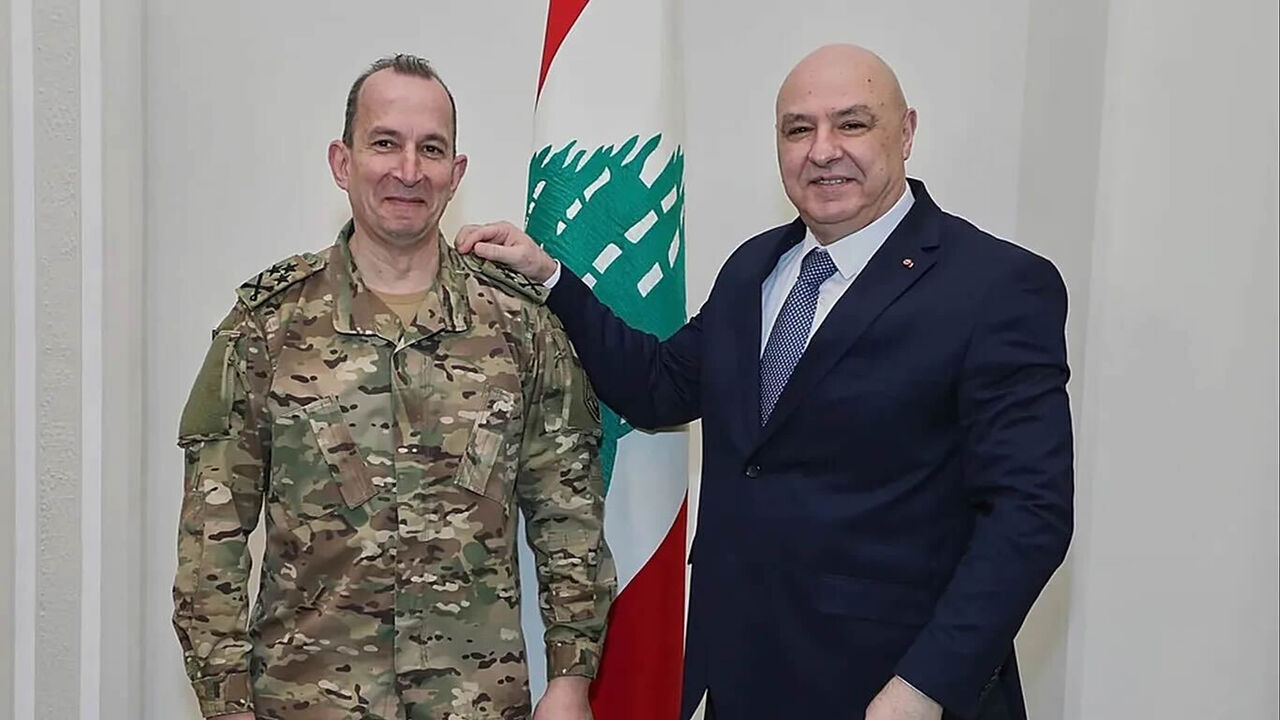
BEIRUT — Washington canceled a planned visit by Lebanon’s army commander Gen. Rodolphe Haykal, a Lebanese official source told Al-Monitor, in the latest sign of the Trump administration’s growing frustration with Lebanon over what it views as a failure to act swiftly against the Iran-backed Hezbollah militant group.
What happened: Haykal was scheduled to travel to Washington Tuesday for his first official visit since taking office in March. He was set to meet with US officials to discuss the army’s plan to bring all weapons in Lebanon under state control, including Hezbollah’s, and to raise concerns about continued Israeli strikes despite the ceasefire that ended the 13-month war between Israel and Hezbollah last November. He was also expected to discuss new US assistance programs for the Lebanese military.
According to multiple Lebanese media outlets, Lebanese authorities were informed of the cancellation shortly before Haykal was due to depart, effectively scuttling his meetings and a reception planned in his honor at the Lebanese Embassy in Washington.
Lebanon's MTV channel, citing its correspondent in Washington, reported that the US decision came in response to a military statement issued Sunday that blamed Israeli attacks — rather than Hezbollah — for ongoing instability.
“This statement sparked anger among a number of prominent members of Congress and opened an internal debate about the future of aid to Lebanon,” MTV reported.
The matter was reportedly raised with US Secretary of State Marco Rubio, who now oversees US policy toward Lebanon, including military assistance. According to MTV, future US-Lebanese army cooperation will depend on the army’s positions in the coming period on border arrangements and Hezbollah's disarmament.
The Lebanese army issued its statement Sunday after a United Nations peacekeeping patrol (UNIFIL) came under Israeli fire in south Lebanon. “The Israeli enemy persists in its violations of Lebanese sovereignty, causing instability in Lebanon and hindering the completion of the army's deployment in the south,” the statement said.
Several US lawmakers sharply criticized the army in response. South Carolina Sen. Lindsey Graham accused Haykal of undermining efforts to stabilize Lebanon, posting on the X platform that referring to Israel as “the enemy” and failing to act decisively on Hezbollah represented “a giant setback for efforts to move Lebanon forward.”
“This combination makes the Lebanese Armed Forces not a very good investment for America,” he added.
It is clear that the Lebanese Chief Head of Defense -- because of a reference to Israel as the enemy and his weak almost non-existent effort to disarm Hezbollah -- is a giant setback for efforts to move Lebanon forward.
This combination makes the Lebanese Armed Forces not a very… https://t.co/qLl8alCiCj— Lindsey Graham (@LindseyGrahamSC) November 17, 2025
Iowa Sen. Joni Ernst also denounced the Lebanese military's stance. “The LAF are a strategic partner, and … Israel has given Lebanon a real opportunity to free itself from Iran-backed Hezbollah terrorists,” she wrote on X the same day. “Instead of seizing that opportunity and working together to disarm Hezbollah, the CHOD [Haykal] is shamefully directing blame at Israel.”
Why it matters: The cancellation of Haykal’s visit risks straining what has long been a strong relationship between the United States and the Lebanese army. Washington has been one of the Lebanese army's primary supporters for the past 18 years, providing more than $3 billion in assistance to bolster Lebanon's internal security and border patrol, according to the State Department.
Last month, the United States delivered $190 million in military aid as part of a broader $230 million package for Lebanon’s security forces. The assistance includes direct financial support, equipment and training programs, making Washington the Lebanese army's most significant international backer.
In March, the Trump administration approved a $95 million military assistance package for the Lebanese military despite a 90-day freeze on foreign aid — a move analysts saw as support for Lebanon's military and government amid tensions with Hezbollah.
Background: Since the November 2024 ceasefire, Washington has been pressuring Beirut to quickly move forward with disarming Hezbollah. Although the army said it is implementing a plan drafted in September to place all weapons under state authority, US impatience has grown over perceived delays, while Israel has accused Hezbollah of attempting to rearm in violation of the truce.
The army has dismantled hundreds of Hezbollah sites and weapons depots in southern Lebanon as part of the ceasefire agreement. According to US Central Command, the military has removed nearly 10,000 rockets, almost 400 missiles and more than 205,000 pieces of unexploded ordnance from the south over the past year.
UNIFIL said it has helped redeploy the army to more than 120 positions in southern Lebanon and supported its efforts to clear roads and unexploded munitions.
Hezbollah, weakened after the war with Israel, has lost most of its senior leadership — including longtime Secretary-General Hassan Nasrallah — and analysts estimate the group has lost around 70% of its military capabilities.
Israel, however, accuses the movement of attempting to rebuild. Military spokesperson Nadav Shoshani told reporters last week that Hezbollah was operating in southern Lebanon in violation of the ceasefire while simultaneously trying to smuggle weapons from Syria and other routes.
Hezbollah has long relied on the route through Syria to move weapons and funds from Iran — historically facilitated by its ally, now-ousted Syrian President Bashar al-Assad. “We are working to prevent that from happening and to block the ground routes from Syria into Lebanon to a high level of success, but they still pose a threat to us,” Shoshani said.
Know more: Israel has continued daily airstrikes in southern and eastern Lebanon, both Hezbollah strongholds. On Tuesday, an Israeli drone strike hit a car in the southern town of Bint Jbeil, killing a man identified by Lebanese authorities as Ali Sheaito, who works at the Union of Municipalities of Bint Jbeil. The Israeli military has not yet commented.
On Sunday, the Israeli military said it killed Hezbollah operative Muhammad Ali Shuweikh in al-Mansouri, noting he was involved in seizing private property for “terrorist purposes.”
In a televised speech Monday, Hezbollah Secretary-General Naim Qassem accused Israel of violating the ceasefire. “The [Israeli] aggression is the problem,” he said, “not the resistance, not the Lebanese state’s institutions, nor the army.”
"The Lebanese army deployment south of the Litani River despite the continued aggression is a concession,” Qassem added, claiming Israel has not implemented any obligations under the ceasefire and that the United States has offered “no guarantees.”
He warned that those who portray Hezbollah as the problem “because it is not surrendering” are effectively accepting that Lebanon should be surrendered to Israel, calling on the Lebanese state to adopt a plan to confront “Israeli aggression.”

